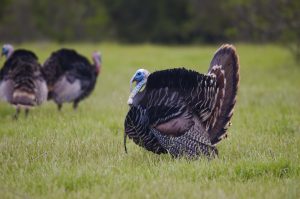The Ethics of Hunting
By Mike Iodice and Spencer Musselman
Hunting is essential to Conservation and hunters have been extremely influential in the protection of public lands and biodiversity. Unfortunately Flabby Pluralism has shifted cultural perceptions over the last few decades have created a false narrative that hunting is immoral and unethical, putting the future of hunting in our society in jeopardy. Too often some environmentalists dismiss the concept of hunting as inhumane, see it as archaic and providing little benefit to protecting our natural world– this could not be further from reality. Many hunters, sportsmen, and sportswomen provide more funding for Conservation than any other group and also are some of the greatest stewards of nature.

Wild Turkey populations rebounded from the brink of extinction after sportsmen intervened. Source: Wikimedia
Unfortunately not all hunters are ethical; poachers are responsible for killing threatened species across the globe. On the other hand lawful ethical hunters provide the greatest bulwark against poaching. Our study focuses on the ethics of hunting in particular its dietary, societal, and Conservation benefits that make hunting sustainable for posterity. To support our claims we will focus on terms such as eco-speak, stakeholders, pluralism, and sustainability as well as draw connections from media, research, and literature.
Video by the Rocky Mountain Elk Foundation.
Keywords:
Table of Contents:
Ethical hunting and Culinary Expression
The Benefits of Ethical Hunting for Conservation
